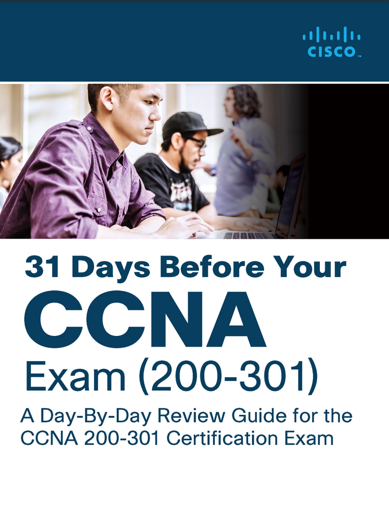Exclusive Courses | Cisco Certified Network Associate (CCNA) Training
Cisco Certified Network Associate CCNA 200-301 Training Course
- 16 hours of targeted video instruction from industry experts on how to install and manage Cisco networks
- 300+ hands-on labs that replicate real-world situations (e.g., router and switch CLI configuration and troubleshooting)
- Quizzes and flash cards are excellent self-study tools
- To ensure test readiness, we offer exclusive practice exams
- Taking the CCNA 200-301 Exam Tips and Tricks
What you'll learn
Training Course Outline
Cisco Certified Network Associate (CCNA) Training
Common network components, architectures, and designs
Network cabling
IPv4 address structure, assignment, verification, and name resolution
Types of IPv6 communication
Binary numbering
Basic and advanced subnetting
IPv6 address format and communication
IPv6 addressing
Ethernet switching fundamentals
Neighbor discovery
Virtual LANs (VLANs)
Trunking, Spanning Tree Protocol (STP), and EtherChannel
Routing fundamentals
Static routing and OSPFv2 routing
First Hop Redundancy Protocols
Wireless network
Training Options
Self Paced Learning
- Lifelong access to high-quality content
- Curated by industry experts
- Customized learning progress
- 24/7 learner assistance and support
- Follow the latest technology trends
Exam Dump
- 100% Real Exam Practice Tests
- 100% Verified Exam Questions & Answers
- 100% Guarantee Passing Rate
- Average 7 Days to Practice & Pass
Description
The instructor-led certification prep course covers core networking technologies, IPv4 and IPv6 addressing, Ethernet switching and routing, wireless networks, network services, and network programmability.
Pre-requisites
Anyone involved with installing, operating, configuring and verifying small to medium-sized networks Anyone planning to take the current CCNA 200-301 exam and obtain the latest Cisco Certified Network Associate (CCNA) certification Anyone interested in developing skills fundamental to a broad range of IT careers

How to Register, Start, and Access a Cisco Online Exam
This document provides instructions for registering, accessing, and taking Cisco online exams.

31 Days Before Your CCNA Exam (200-301)
This book is designed to provide information about exam topics for the Cisco Certified Networking Associate (CCNA) certification.
CCNA Exam & Certification
What is a Cisco Certified Network Associate?
A Cisco Certified Network Associate (CCNA) is an entry-level certification by Cisco Systems, validating foundational expertise in networking, security, automation, and IT infrastructure. It equips professionals to configure, manage, and troubleshoot Cisco devices like routers, switches, and wireless controllers. Covering topics from IPv4/IPv6 subnetting to SDN (Software-Defined Networking), CCNA prepares candidates for roles like Network Administrator or Engineer. Updated to reflect modern demands, it integrates cloud, IoT, and network programmability, ensuring holders can adapt to evolving technologies. Globally recognized, CCNA serves as a stepping stone to advanced certifications (e.g., CCNP) and industry-standard networking careers.
What Skills Does the CCNA Include?
CCNA encompasses skills in:
- Network Fundamentals: OSI model, TCP/IP, VLANs, and wireless concepts.
- IP Services: DHCP, NAT, QoS, and IPv4/IPv6 addressing.
- Security: Port-security, VPNs, and basic threat mitigation.
- Automation: Python scripting, REST APIs, and Cisco DNA Center for SDN.
- Troubleshooting: Diagnosing connectivity, routing (OSPF, EIGRP), and switching issues.
These competencies ensure proficiency in configuring Cisco environments, optimizing performance, and securing networks against modern threats, aligning with real-world IT infrastructure demands.
How do I Install and Manage Cisco Networks?
To install and manage Cisco networks:
- Design: Plan topology, IP schemes, and security policies.
- Configure: Use Cisco IOS CLI or GUI tools (DNA Center) to set up devices.
- Deploy: Implement VLANs, routing protocols, and access controls.
- Monitor: Utilize tools like SNMP or Cisco Prime for performance tracking.
- Troubleshoot: Diagnose issues via show commands, logs, and packet analysis.
- Automate: Use Python/Ansible for repetitive tasks.
Hands-on practice with simulators (Packet Tracer) or physical labs is essential. Mastery requires understanding Cisco's best practices and documentation.
Is a CCNA Right for You?
CCNA is ideal if you:
- Seek entry-level networking roles (e.g., Network Technician, Support Engineer).
- Want foundational skills for advanced Cisco certifications (CCNP, CCIE).
- Aim to work with Cisco technologies in enterprise or cloud environments.
- Value a globally recognized credential to boost employability and salary.
It's less suitable for those uninterested in hands-on device management or seeking vendor-neutral certifications. CCNA demands dedication to labs and theory but offers career flexibility, technical credibility, and alignment with industry trends like automation and hybrid infrastructure.